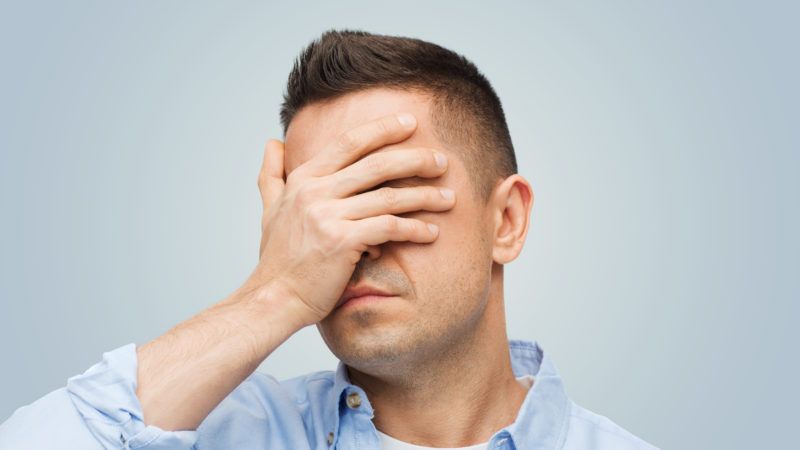The Coronavirus Outbreak Is Exposing Government Follies on Many Levels
Most serious approaches to the crisis, however, are decidedly libertarian. They involve reducing regulations that keep industries from responding rapidly in an emergency situation.

After the coronavirus spread, left-leaning writers began declaring that no one is a libertarian during a pandemic. We all need collective action to save us from this frightening health risk, they say.
But a funny thing happened on the way to big-government Nirvana, as officials try to ramp up testing and assure that we all have access to vital medical and other services.
The first thing that state officials did was grab various executive powers to order us to stay at home. Now, the federal government is pumping $2 trillion in taxpayer funds into the economy in the form of various bailouts—something that might help ease the economic pain in the short term, but will cause more harm (exploding debt) in the long run.
These government responses grab headlines, but offer little relief. Most serious approaches to the crisis, however, are decidedly libertarian. They involve reducing regulations that keep industries from responding rapidly in an emergency situation.
I recently explained how the market economy—and its sophisticated supply chains—is keeping us fed in these isolated times. Now we're seeing that government is more of an obstacle than a help. Pretty soon, we'll all be libertarians during a pandemic. The question is why more of us aren't libertarians the rest of the time, given what we're learning about the nature of government.
Let's start at the federal level. As Reason's John Stossel recently explained, the Centers for Disease Control's COVID-19 tests were woefully inaccurate, but private companies were forbidden from developing tests unless they went through the long process of Food and Drug Administration approval. The Trump administration has temporarily waived those rules, but they left our country in a precarious position when a pandemic struck.
"The federal government regulates and monitors practically every activity that takes place in the US economy, from where and when truck drivers drop off their deliveries, to what tests hospitals and labs can use on patients," CNN reports. That's an eye-popping statement about the degree to which government controls everything. (So much for America being the land of unbridled capitalism!)
Because of the delays these rules cause, the Department of Transportation now is waiving restrictions on how many hours truck drivers can work. The Department of Health and Human Services is waiving privacy laws so more Americans can use telehealth services—allowing them to access medical advice from home. During good times, few people notice the burdens. They are more obvious when the chips are down.
At the local level, police departments are suspending the enforcement of picayune infractions. Some cities, such as Philadelphia, are not making minor drug and prostitution busts. Los Angeles is releasing some low-level inmates from its jails. It makes you wonder why law enforcement focuses on such things during normal times.
California state officials, however, have been resistant to eliminating the nonsensical rules that are making it tough for hospitals to treat increasing numbers of coronavirus patients. The state already has a vast nursing shortage, caused largely by the bureaucracy's limits on nursing-school attendees—something designed to reduce the numbers and boost salaries.
As The Orange County Register reported, a number of hospitals are discontinuing clinical rotations during the crisis, which will delay nursing graduations because students are required to spend 75 percent of their clinical education in a hospital. The other 25 percent is done through simulations. The schools are asking the governor to reduce that requirement to 50 percent. He has yet to give an OK, but relaxing that rule will reduce nursing shortages.
Meanwhile, California is in a minority of states that does not recognize nurse-licensure compacts—agreements that allow qualified and licensed nurses from other states to work here. Licensing rules in general impose steep barriers to entry for workers—and mostly are about established industries artificially boosting pay by reducing competition. They unquestionably create shortages, which create real dangers in a health emergency.
Sen. John Moorlach (R–Costa Mesa) has introduced Senate Bill 1053, which would include our state in a 34-state nursing compact. It's a sensible reform, especially in these dire times. If the Legislature were serious about assuring that we have enough trained staff to deal with coronavirus patients, they ought to pass this measure as soon as possible. Remember this when you hear lawmakers complain about healthcare shortages.
If the governor were serious about improving resilience during the current mess, he should immediately postpone enforcement of Assembly Bill 5, which forbids many industries from using contractors as workers. The law impoverishes freelancers during a time of hardship, discourages people from working at home and imposes hurdles on those providing vital delivery services. It creates a real impediment.
Government has a role, but a lot of what it does is harmful. We need to suspend counterproductive rules now—and then think twice before we reinstitute them after the crisis has passed.
This column was first published in the Orange County Register.


Show Comments (89)